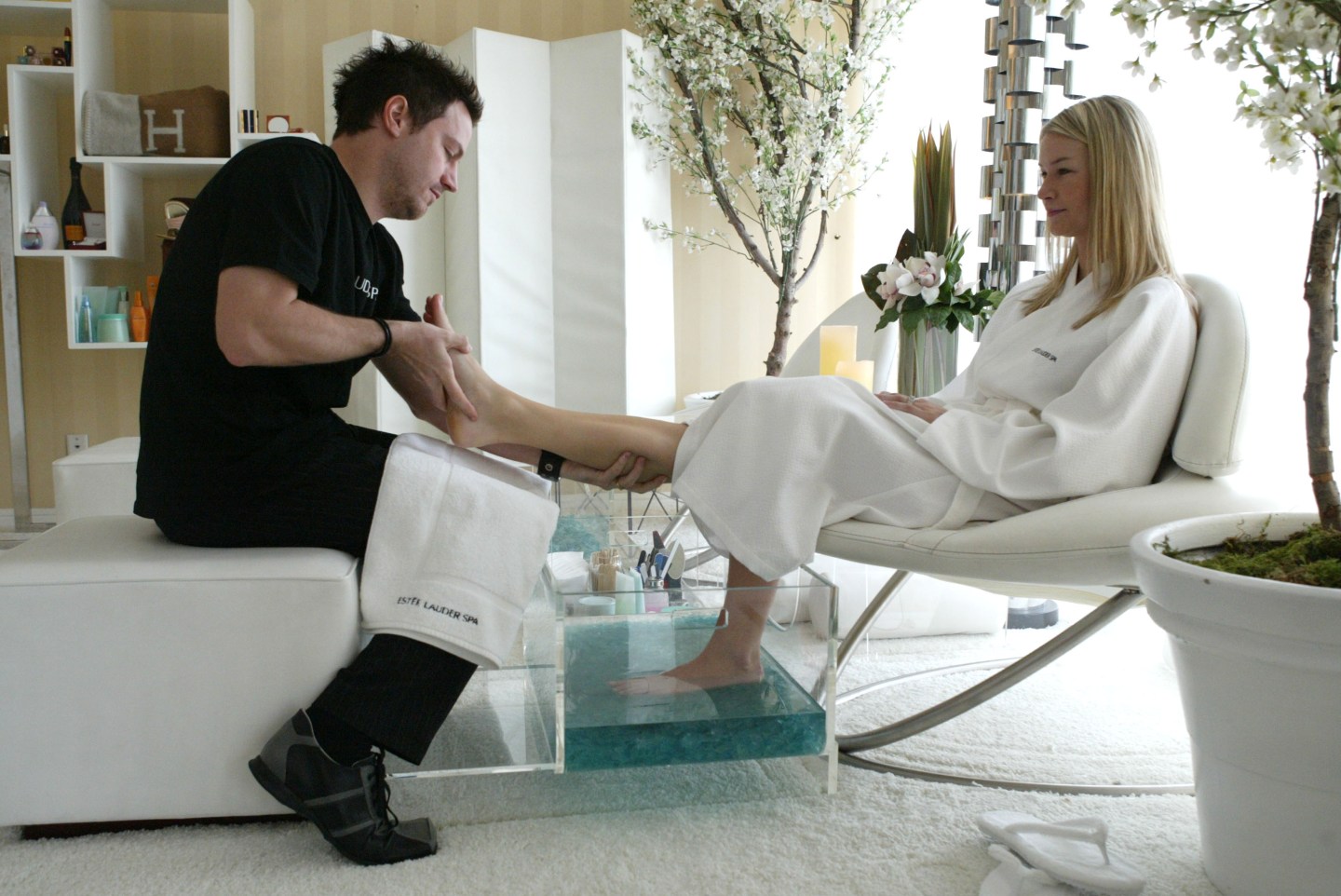These days, you can find an on-demand app to deliver you almost any product or service with just a few taps, and massages — yes, massages — are no exception.
Soothe, a Los Angeles-based company, promises the ultimate relaxation (almost) anytime, anywhere. On Wednesday, the company said it has raised $10.6 million in new funding from The Riverside Company to fuel its expansion.
Like fellow massage-on-demand startups such as Zeel and UnwindMe, among others, Soothe recruits and vets licensed massage therapists who would like to get some extra clients and appointments, and makes them available through its online service. Customers can book a massage through the website or smartphone app, and it can be for as soon as within the hour, or for another date and time of their choosing.
Soothe works with about 1,500 independent massage therapists and is available in 13 cities, including San Francisco, Los Angeles, Chicago, Seattle, and Washington, D.C. It charges $99 per hour and therapists keep 70% of the money, Soothe founder and CEO Merlin Kauffman told Coins2Day.
Kauffman came up with the idea while at Harvard Business school, when he realized that getting regular massages (he grew up around alternative wellness practices, thanks to his mother) conveniently wasn’t possible. Soothe is essentially a solution to his own problem.
As with every on-demand startup, two main questions are immediately top of mind. First up, labor: Soothe’s massage therapists are independent contractors. But Kauffman argues that, unlike some other startups also classifying their workers as such, Soothe’s really are operating as independent professionals using the service to grow their own practice. And Kauffman’s argument is fairly compelling. Many massage therapists already do have their own clients, even if they also work for a spa or other business, so Soothe is simply another customer acquisition channel for them.
“We aren’t teaching them something they don’t already know,” he said, to support the idea that the massage therapists are professionals operating fully independently without chaperoning from Soothe.
Kauffman also assured us that Soothe’s vetting process includes a background check and getting a massage from the therapist to assess their skills. Soothe also only works with licensed therapists, which Kauffman says often requires hundreds hours of training and other stringent requirements.
The other question is about whether the startup’s business model is sustainable — or even necessary at all. Startups have been cropping up left and right to make every single thing into an on-demand service: groceries, security guards, car valets, hotel reservations, medical marijuana, cookies, flowers, and more. But not all are necessary, and those that aren’t will likely die out.
However, in the case of Soothe and its peers, it’s not a far cry from what massage therapists were already doing. It’s simply providing them a service to book additional appointments on the side to fill up any extra time they have. This model of scooping up unused inventory exists in other sectors, such as fitness classes (ClassPass, Fitmob), beauty (StyleSeat), parking (SpotHero, and even valet apps like Luxe and Zirx), and others. And since Kauffman says that the company is profitable in its major markets, we’ll give his business’s viability the benefit of the doubt for now.
If anything, the real worry is that more than one of these services exists. Surely, massage-lovers in one city don’t really need more than one, and putting the others out of business (or consolidation) would be the best way to maximize on the potential on-demand massage market.
Kauffman founded the company in 2013, and it has now raised $12.7 million in total funding.












